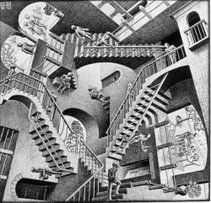
Linguistics is a science at the crossroads of humanities, social and natural sciences. It is a discipline for those who like to have their hands in many fields at the same time – it satisfies the curiosity of anthropologists, historians, scholars of classical languages, biologists, psychologists and others.
Linguistics ask questions about how languaje works such as: What does language usage indicate about speakers? How is language related to our mind? How did language originate? Why does language change and what triggers the change? How do speakers use language to advance their position in society? Why do languages enter into political conflicts and peace negotiations? And so on. Their focus is on language as inseparable from us, speakers, defining and molding us as we use and change it to suit our needs.
The two main branches of linguistics are:
- Theoretical (or general) linguistics
- Applied linguistics
Linguistics compares languages (comparative linguistics) and explores their histories, in order to find universal properties of language and to account for its development and origins (historical linguistics).
Applied linguistics puts linguistic theories into practice in areas such as foreign language teaching, speech therapy, translation and speech pathology.











No comments:
Post a Comment